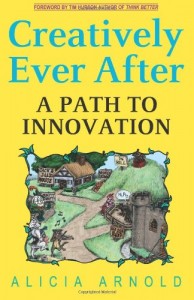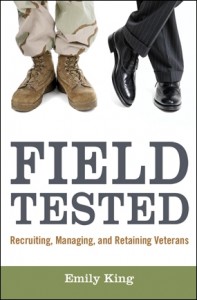How to read a book a week
Someone reached out to me the other day to ask what books I might recommend for an HR Generalist. I’ve been doing a handful of book reviews lately, and I also saw that my good friend Trish wrote on the topic as well, so this seemed like a great time to bring up my philosophy on business books.
Get an MBA… From books?
One of the best resources I’ve come across with regard to organizing and explaining the need to read books is PersonalMBA.com. Josh Kaufman has put together a resource to help business leaders learn everything they need to know without adding in the time and monetary cost of going to school for an MBA. A few places to start:
My take on reading
I helped set up a corporate library. I am a firm believer in employee reading programs. Obviously I’m a fan of books. But why? Am I a nerdy bookworm? Well, yes, but there are other reasons for reading as well.
Books make you smarter in all areas of your life.
“The difference between where you are today and where you’ll be five years from now will be found in the quality of books you’ve read.” – Jim Rohn
I make mistakes. Sometimes too often. But I learn from them. I do what I can to figure out where things went wrong and make a course correction. Imagine if you could learn from the mistakes of others as well. What if you could hear their take on how they could have changed their actions or beliefs to avoid problems and costly errors.
You can.
Not every book has something valuable in it. I recently reviewed a book that was an interesting read, but I really didn’t get any value from reading  it. Other books on my shelf at work are highlighted, dog-eared, and tattered from reading and re-reading the lessons they contain. To sum that up:
“Smart people learn from their mistakes. But the real sharp ones learn from the mistakes of others.†- Brandon Mull
Don’t be crazy
I don’t sit around reading HR textbooks all day. I mix up my reading between contemporary/classic fantasy (Jim Butcher=favorite), science fiction (F. Paul Wilson’s Repairman Jack series), self improvement (marriage, parenting, etc.), and whatever else looks interesting. But while the some of those are purely for enjoyment and stress relief, I still make time to slip books in that I can learn something from to apply in my work or life.
How to read a book a week
I lamented earlier this week that I’ve spent my Books a Million gift cards from Christmas already. And I’ve finished the three books I purchased. How did that happen in less than 30 days? Well, I carry my books with me wherever I go. Sitting in the car waiting on the kids to get out of school? There is time to get a few pages in. Waiting at the doctor’s office? You can read whole chapters. ;-) Seriously, though, those little pieces add up. I spend a more concentrated 15-30 minutes each night if I can fit it in, but honestly having those little pieces here and there during the day can easily add up.
If you put your mind to it and take reading a book per week seriously, that would be over 50 books this year alone (with two weeks off as cushion). If you’re only halfway successful, that’s 25 books you may not have otherwise read. That knowledge can never be taken away from you. A large portion of adults never read another book after they graduate. Don’t be included in that statistic!
Hopefully I’ve imbued you with some of my own enthusiasm for reading. Now, I’d love to stay and chat, but my book is calling me…
I’m always looking for good recommendations, so if you have one, please feel free to share!

